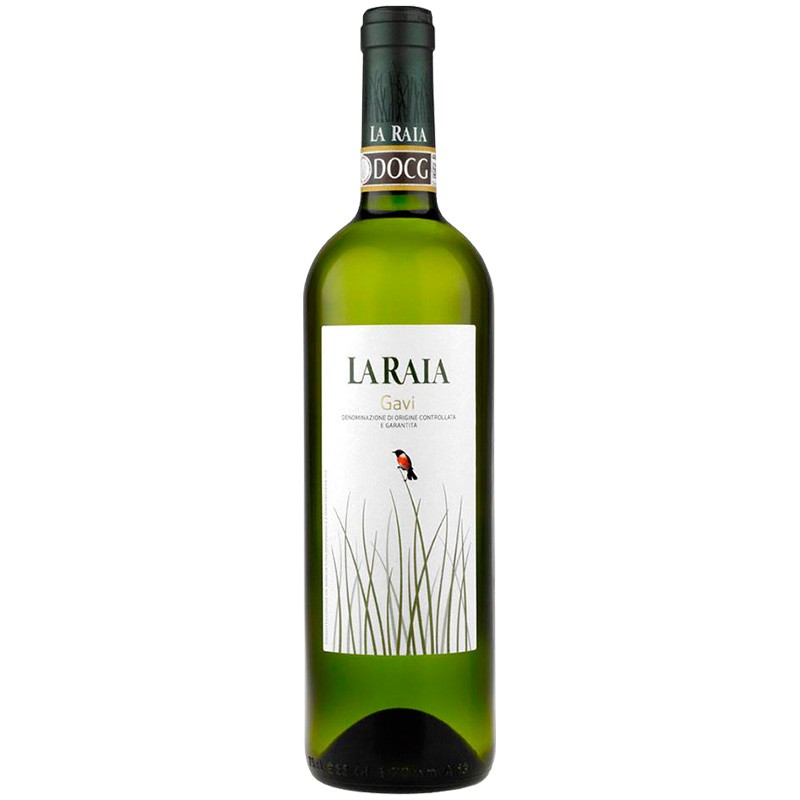



White wine with straw yellow color, with slight greenish hints.
The aroma offers a particularly fine mineral feeling and notes of fruit and white flowers.
In the palate it’s a white wine lively, balanced, with a fresh acidity, which increases its persistence and favours its drinkability. A slight almonds finish.
Excellent as aperitif, paired with hors d’oeuvres and fish ragù or vegetable first courses. It is the perfect match also for seafood, white meat and fresh young cheese.
We recommend that you enjoy this wine at one temperature between 10° and 12° C.
ALCOHOL CONTENT: 12.5%

Delivery: 2 to 6 weeks

Delivers all over the world by truck, air and sea. In LCL or full container.

Shelf Life / Products Validity: We always deliver with the maximum validity.
The Gavi which interprets the tradition of the terroir and identifies the typical characteristics of the Cortese vine variery from which it originates.
The soil at the vineyard is calcareous and clayish; it extends at approximately 400 meters above sea level with a south-east-west exposure. A crown of vineyards distributed around the cellar, with an average density of 4500 vines per hectare and an age ranging from 9 to 70 years old. According to the farm’s core philosophy that complies with the biodynamic principles, the vines are farmed without any use of chemicals.
Cortese grapes for Gavi production benefit of the typical microclimate of our area, which highly concentrates its activation within the vineyards located around the cellar. The grapes are healthy and present a good sugar rate and a balanced acidity; this allows us to produce a very pleasant and easy to drink white wine.
Grapes are handpicked around mid-September and, after a careful selection, they are destemmed. In this way grapes only arrive in the wine press for a delicate pressing. After the natural decantation, must is put in stainless steel tanks to avoid microbiological alteration which could compromise the wine quality. The alcoholic fermentation lasts 15/20 days and takes place at the controlled temperature of 18° C. The wine is left on native yeasts for about 3/4 months; it is then cold stabilized, before being bottled in March. This method helps to obtain a fresh, ready to drink wine.
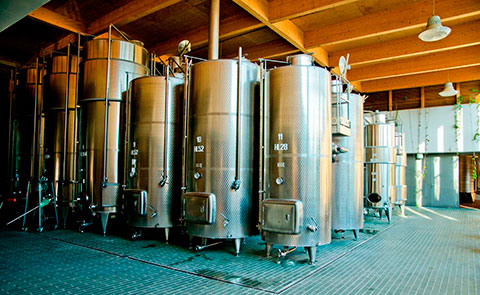
COLOUR: is straw yellow, with slight greenish hints.
AROMA: offers a particularly fine mineral feeling and notes of fruit and white flowers.
MOUTHFEEL: lively, balanced, with a fresh acidity, which increases its persistance and favours its drinkability. A slight almondish finish.
ALCOHOL CONTENT: 12.5%
Excellent as aperitif, paired with hors d’oeuvres and fish ragù or vegetable first courses. It is the perfect match also for seafood, white meat and fresh young cheese.
BEST SERVED: Between 10° and 12° C.
If stored in a cool dry place, and in the dark, at 10°/18° C, bottles keep unaltered up to 3/4 years.
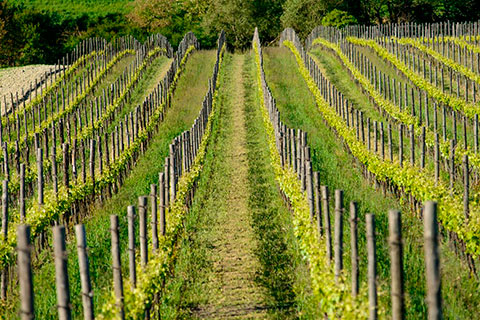
At our farm we follow the biodynamic approach, not only dispensing with fertilizers, pesticides and herbicides, but also using the soil and its vital resources in a careful and responsible way.
The traditional agriculture uses fertilizers, instead: plants are nourished with soluble food which roots absorb passively, thus vines lose their identity and the relationship with the soil therefore uniform all flavours and characteristics of their fruits. Biodynamic treatments are a way of harmonizing the farm and the universe’s creative rhythm.
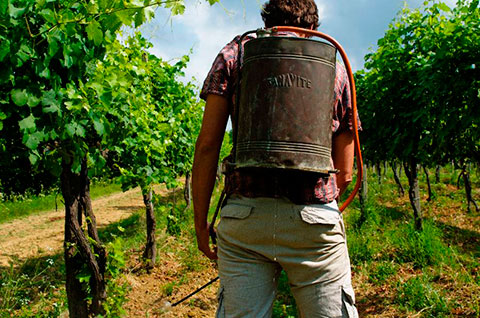
At our vineyard we use two spray preparations, the horn manure and the horn silica, which influence the dynamics of the vegetal growth, improving the quality of our grapes and crops. Both preparations are mixed up in water for one hour just before use.
The blending starts by spinning in one direction, creating a deep whirlpool in the barriques. The direction is then changed and blending continues until a new whirlpool is created. Mixing up small doses of material in large quantities of water is called “dynamization”.
Biodynamic farm with Demeter certified since 2007. It is one of the 47 wine certified companies in Italy.
For over half a century the international Demeter trademark has been granting the correct implementation of the biodynamic principles to cultivations and food productions all over the world. Controls on the conformity to such principles and to the provided procedures are constant.
In particular, as far as wine is concerned, Demeter certification attests not only the quality of grapes, but also of all the processes of winemaking and of the winery itself. The commitment to the respect for nature goes thus throughout the entire productive process, to deliver to consumers a biodynamic wine, peculiar expression of the terroir and exclusive product of nature’s will.
Winery distinguishes for its exclusive biodynamic piedmont wine production which highly respects the international certification criteria.
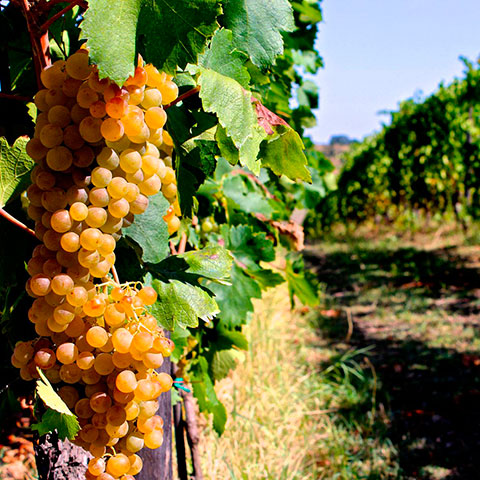
Cortese is a white grape variety that is most famous for its role in the crisp, lime-scented wines of Gavi. The variety is known for its bracingly high acidity and its ability to retain freshness, even when grown in hot environments. Apple, peach and honeydew flavors are commonly associated with Cortese wine, with lime, almond and light herbal or grassy aromas.
The variety has been grown in the southeastern part of Piedmont for hundreds of years, and is mentioned in documents that date back to the beginning of the 17th Century. It has long been considered as Piedmont's finest white variety and is often credited as introducing the world to Italian white wine. Nowadays, however, it has been usurped somewhat by Arneis and Moscato d'Asti.
Cortese must be watched carefully in the vineyard to ensure success: it is a vigorous, productive vine and if yields are not kept in check then the wines can be bland and lacking in character. Ripeness is another key issue – while it does well in Gavi's warm environs, it can struggle to ripen fully in other parts of Piedmont. This leads to wines with almost unmanageably high acidity, which is why Cortese is used more often as a minor blending grape outside of its home town.
Some producers use malolactic fermentation to mitigate the variety's high acidity, but it is usually produced in a crisp, dry style. High acidity can be useful to growers as well – Cortese is sometimes used to make sparkling wines.
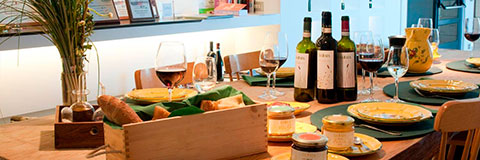
Data sheet